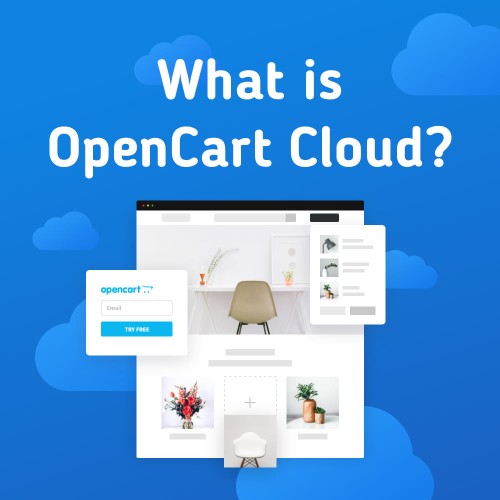In the fast-paced landscape of modern technology, three transformative forces are reshaping the way we shop, do business, and interact with the digital world: e-commerce, artificial intelligence (AI), and cloud computing. As we embark on this journey, we will unravel the interconnected web of e-commerce, AI, and cloud development, and unveil the profound impact they have on each other.
In today's rapidly evolving digital landscape, e-commerce has emerged as a powerful driver of innovation in the realms of artificial intelligence and cloud development. E-commerce platforms harness the potential of AI to enhance customer experiences through personalized recommendations, chatbots, and predictive analytics. Moreover, they rely on robust cloud infrastructure to ensure scalability, security, and reliability, enabling seamless transactions and data management. This synergy between e-commerce, AI, and cloud technology is reshaping the way businesses operate and connect with their customers, ushering in a new era of efficiency and competitiveness.
E-commerce, once merely a digital storefront, has evolved into a dynamic ecosystem generating colossal amounts of data. Web development, leveraging the vast potential of cloud computing, utilizes this data to transform the online shopping experience, streamline supply chains, and improve customer support.. In this blog post, we'll explore how e-commerce acts as a catalyst, propelling AI and cloud technologies forward, and how this symbiotic relationship is shaping the future of business and consumer engagement.
The Convergence of E-commerce, AI, and Cloud:
In today's technology-driven era, the convergence of e-commerce, artificial intelligence (AI), and cloud computing marks a pivotal moment in digital innovation.
E-commerce has transformed the way we shop, creating a massive digital marketplace that generates staggering volumes of data. AI, equipped with machine learning algorithms, harnesses this data to provide personalised shopping experiences, optimise supply chains, and enhance security. All of this is made possible by the vast computing power and scalability offered by cloud technology.
These three realms—e-commerce, AI, and cloud—have merged seamlessly, enabling businesses to leverage data-driven insights, deliver exceptional customer experiences, and streamline operations. This convergence isn't just significant; it's a game-changer, setting the stage for a more dynamic and efficient digital landscape. In this blog post, we'll delve deeper into how this synergy is shaping the future of technology and commerce.
At the forefront of e-commerce innovation stands clientvenue.com, a game-changing platform that is redefining how businesses connect with their customers. With its sleek interface and user-friendly features, clientvenue.com offers a seamless shopping experience that keeps customers coming back for more.
The Data-Driven E-commerce Ecosystem:
In the world of e-commerce, data reigns supreme. This data-driven ecosystem is fueled by a multitude of digital interactions, transactions, and user behaviours. Here's how it works:
E-commerce Data Generation: E-commerce platforms constantly collect data from every click, search, purchase, and interaction. This flood of information includes customer preferences, browsing history, buying patterns, and more.
AI-Powered Analysis: Artificial intelligence steps into the picture, armed with machine learning algorithms. AI processes and analyses this vast data trove, uncovering valuable insights. It identifies trends, predicts consumer behaviour, and even personalizes recommendations to enhance the shopping experience.
Cloud-Powered Infrastructure: Cloud computing plays a pivotal role in this data-driven landscape. It provides the infrastructure needed for storing, managing, and processing this enormous volume of data efficiently. Cloud technology ensures that businesses have the scalability and flexibility to adapt to changing data demands without the burden of managing complex hardware.
Personalization in E-commerce
In the dynamic world of e-commerce, personalization, and finding a Qualtrics alternative has become a driving force behind customer engagement and conversion. OpenCart, a popular e-commerce platform, leverages the power of AI and cloud resources to provide highly tailored shopping experiences. Here's a closer look at how it works:
1. AI-Driven Personalization: OpenCart integrates AI technologies that analyze vast amounts of data collected from user interactions on the platform. This data encompasses user preferences, purchase history, browsing behaviour, and more. AI algorithms then process this data to create individualised shopping journeys.
2. Recommendation Engines: AI-powered recommendation engines are a prime example of personalization in action. OpenCart's recommendation engine uses collaborative filtering and content-based filtering techniques to suggest products to users. For instance, if a customer has shown interest in laptops, the engine can recommend related accessories like laptop bags or peripherals.
3. Personalization Algorithms: OpenCart employs sophisticated personalization algorithms to customise product listings, content, and even pricing for individual users. For example, returning customers might see products based on their previous purchases, while first-time visitors could be shown popular or trending items.
4. Dynamic Content: OpenCart's use of cloud resources ensures the dynamic delivery of personalised content. Whether it's tailored product recommendations, targeted promotions, or personalised emails, cloud infrastructure ensures that the right content reaches the right audience in real-time.
5. Enhanced User Experience: The result of these personalized efforts is an enhanced user experience. Shoppers feel more engaged and understood, which leads to increased customer satisfaction and higher conversion rates.
Supply Chain Optimization:
In the ever-competitive e-commerce landscape, supply chain optimization is a game-changer, and AI and cloud computing are at the forefront of this transformation.
AI and Cloud for Supply Chain Optimization:
Data-Driven Decision Making: AI algorithms, powered by cloud resources, analyze historical sales data, market trends, and various external factors to make data-driven decisions in real-time.
Demand Forecasting: Machine learning models process vast amounts of data to forecast demand accurately. This enables businesses to stock the right products in the right quantities, minimising excess inventory and stockouts.
Inventory Management: AI-driven inventory management systems use predictive analytics to optimise inventory levels. This means businesses can reduce carrying costs and ensure products are readily available when customers want them.
Route Optimization: Cloud-based AI helps in optimising shipping routes and delivery schedules, reducing shipping costs and improving delivery efficiency.
Enhanced Customer Support:
Exceptional customer support is a hallmark of successful e-commerce businesses, and AI and cloud technologies play a pivotal role in making it possible. Contact center solutions can play a crucial role in ensuring smooth operations and excellent customer service throughout the supply chain. Companies like 8x8 provide comprehensive contact centre solutions that integrate seamlessly with AI and cloud technologies, enhancing customer interactions and support.
AI-Driven Chatbots and Virtual Assistants:
24/7 Availability: AI-powered chatbot software and virtual assistants are available round the clock to assist customers, answering queries and providing assistance even during non-business hours.
Efficient Query Resolution: Through natural language processing (NLP), AI chatbots can understand and respond to customer inquiries, offering quick and accurate solutions to common problems.
Scalability: The cloud provides the infrastructure needed for these AI systems to scale seamlessly, handling a growing volume of customer interactions without performance issues.
Cost Efficiency: Cloud resources ensure that businesses only pay for the computing power they use, making AI-driven customer support cost-effective.
Security and Fraud Detection:
E-commerce platforms handle vast amounts of sensitive data, making security and fraud detection paramount. AI and cloud-based solutions are indispensable in ensuring the safety of online transactions.
AI for Fraud Detection:
AI algorithms analyze transaction patterns and user behavior to detect anomalies and potential fraud in real-time.
Machine learning models learn from historical data, continually improving their accuracy in identifying fraudulent activities.
Cloud-Based AI Solutions for Security:
Cloud infrastructure provides the necessary computing power and storage for robust AI-driven security systems, which are at the forefront of security technology standards and often incorporate advanced access control mechanisms to safeguard sensitive data and resources.
Scalability and Cost Efficiency:
Scalability and cost efficiency are two pillars of successful e-commerce operations, and the combination of AI and cloud technologies makes this possible. If you want to further enhance the internal cost and expense management, you can integrate the payroll software into your operating system.
Cloud Computing for Scalability:
Cloud platforms allow e-commerce businesses to scale their operations up or down as needed, without the need for substantial upfront investments in hardware.
This flexibility is vital for handling seasonal peaks in traffic and accommodating business growth.
AI Optimization of Cloud Resources:
AI algorithms can optimize cloud resource usage, ensuring that computing resources are allocated efficiently.
This optimization reduces operational costs by eliminating unnecessary overhead.
Predictive Analytics:
Predictive analytics, powered by AI and cloud resources, enable e-commerce businesses to anticipate customer needs and trends, giving them a competitive edge.
Benefits of Predictive Insights:
E-commerce platforms can optimize inventory levels, ensuring products are in stock when customers want them.
Marketing campaigns can be fine-tuned based on predictive analytics, resulting in better ROI.
Personalized shopping experiences are enhanced through predictive product recommendations.
The Future of E-commerce, AI, and Cloud Integration:
The future holds exciting possibilities for the continued integration of e-commerce, AI, and cloud technologies.
Speculating on Future Trends:
Anticipate increased automation and AI-powered shopping assistants.
Predict greater use of edge computing to reduce latency in e-commerce transactions.
Expect enhanced security measures to combat evolving cyber threats.
Conclusion:
In conclusion, the synergy between e-commerce, AI, and cloud technologies is reshaping the digital landscape. These three pillars are not only transforming how we shop and do business but also driving innovation and efficiency. It's crucial for businesses to embrace this integration, as it holds the key to providing personalized experiences, optimizing operations, and staying competitive in the ever-evolving world of online commerce.




Login and write down your comment.
Login my OpenCart Account